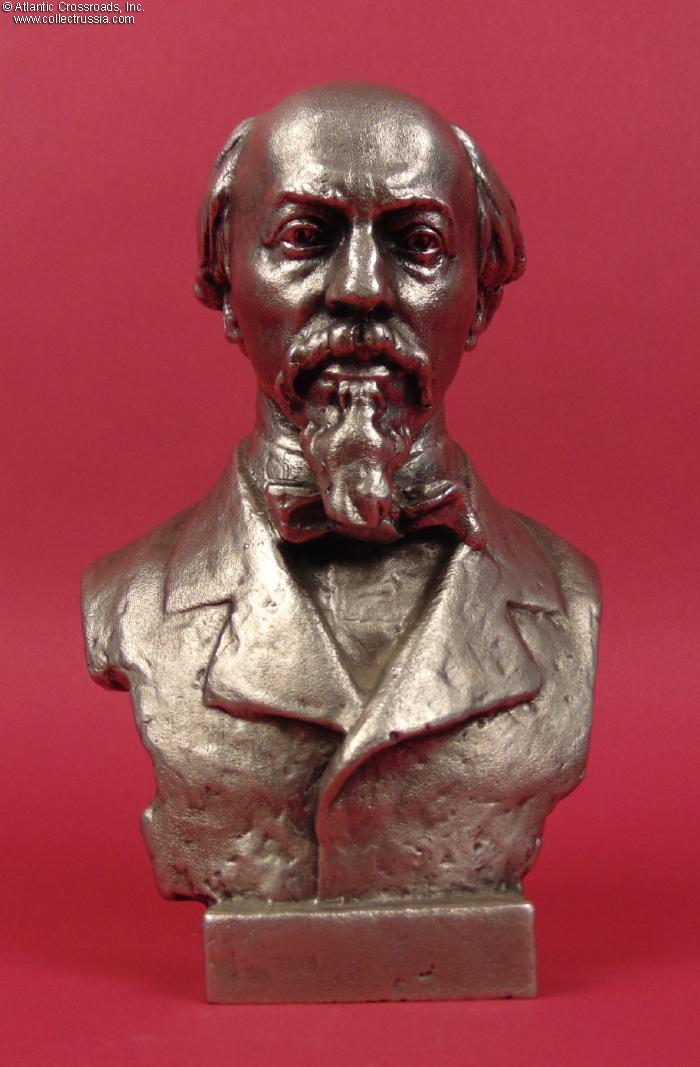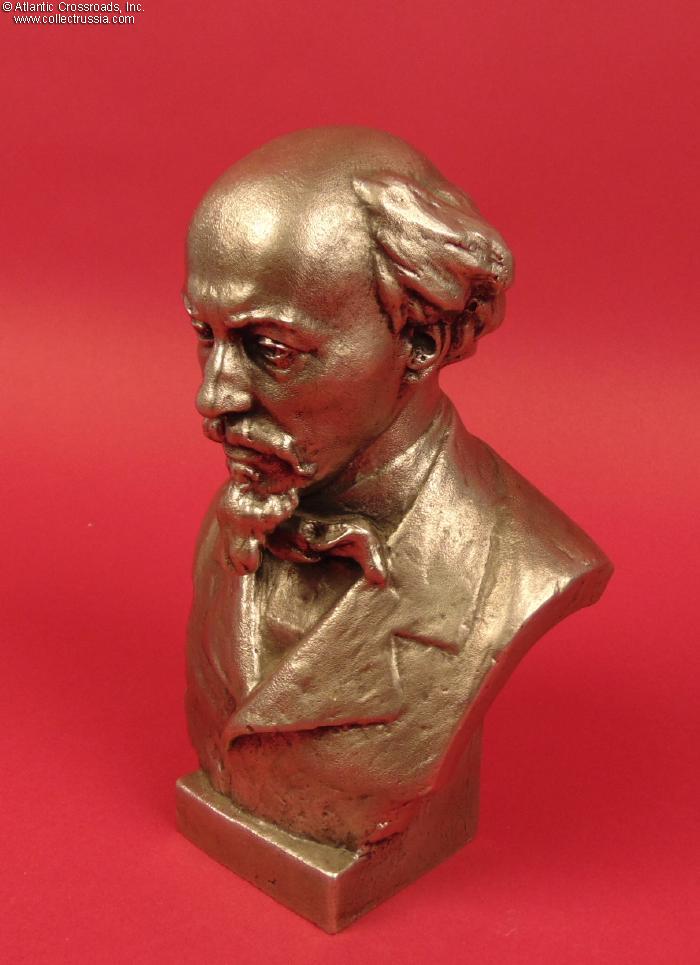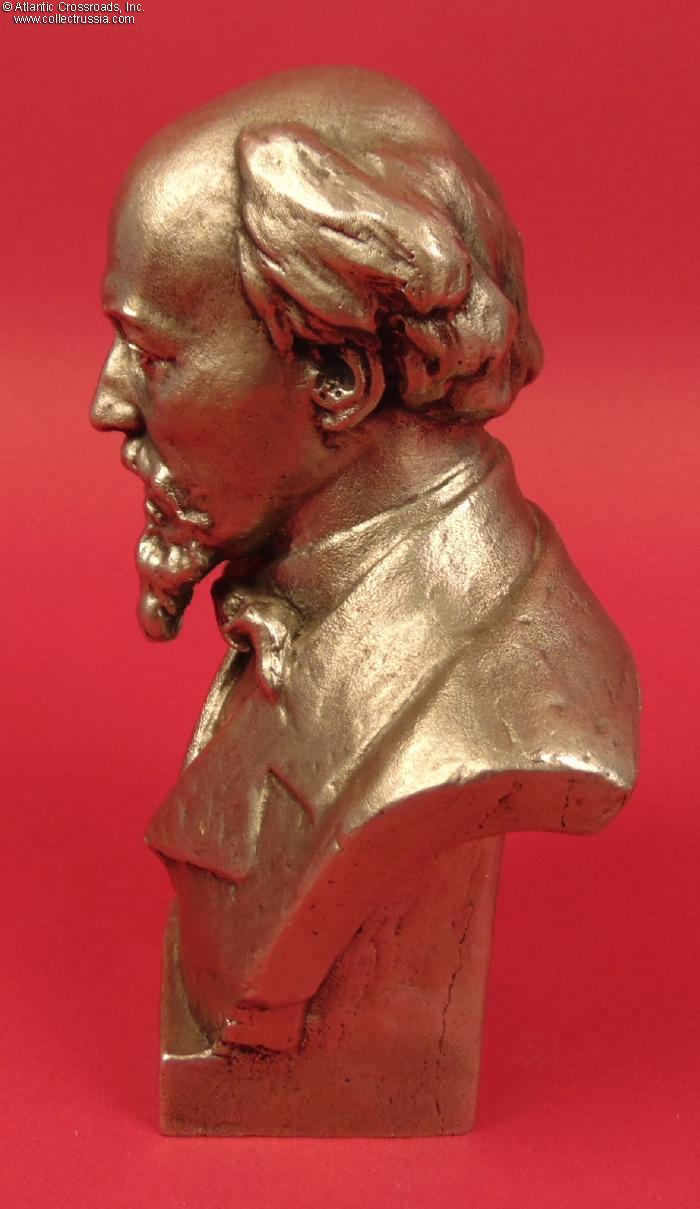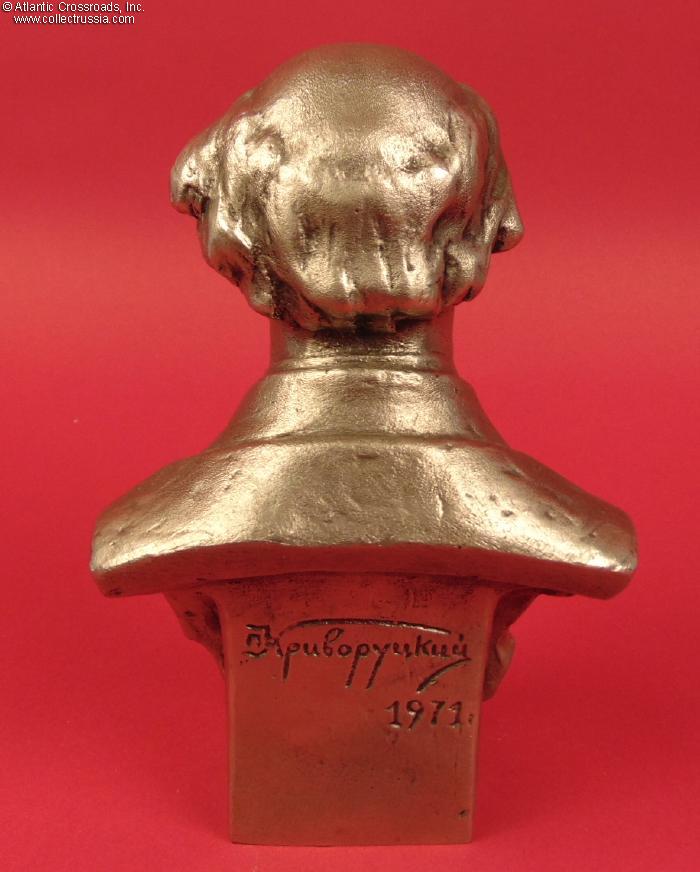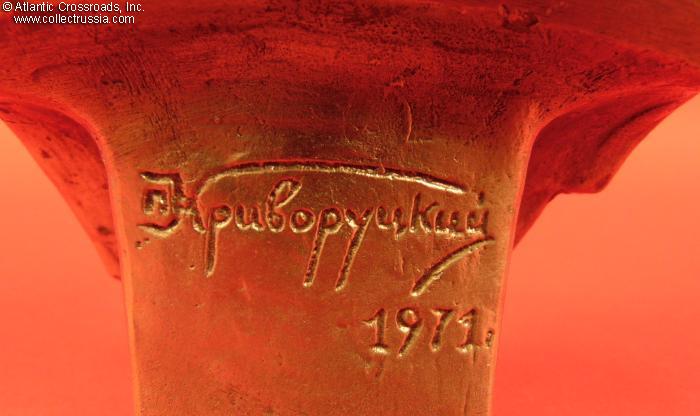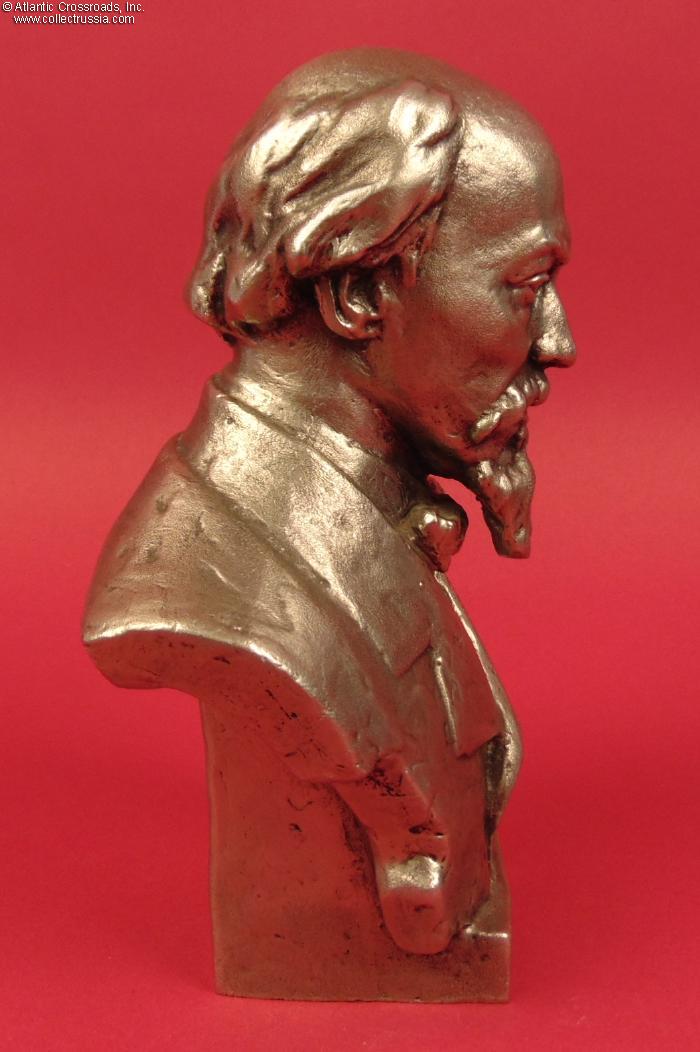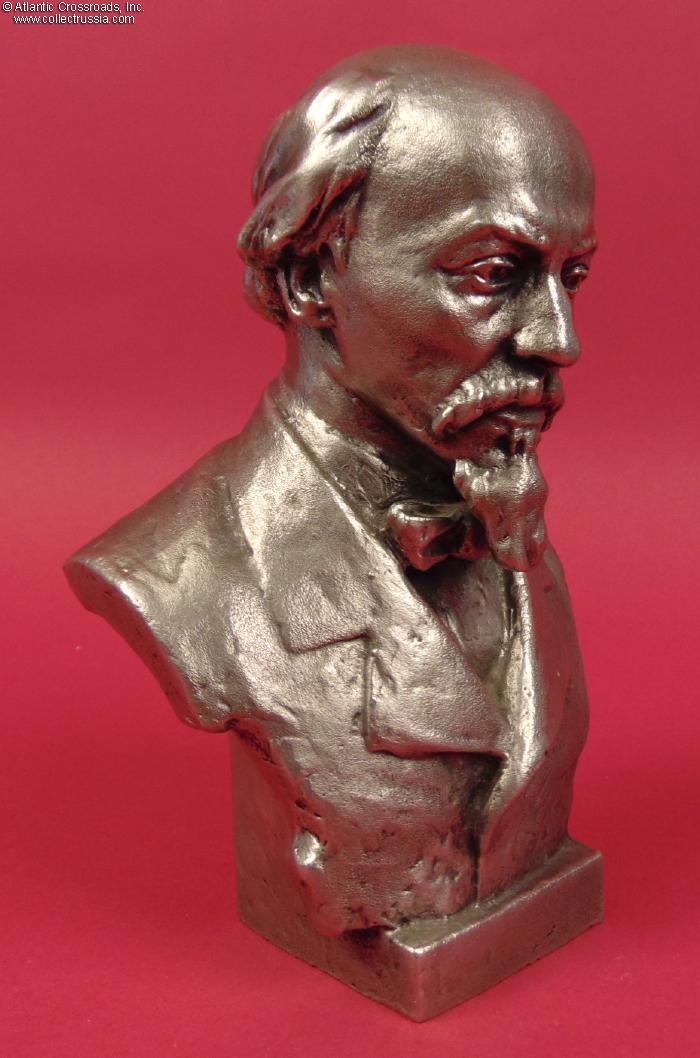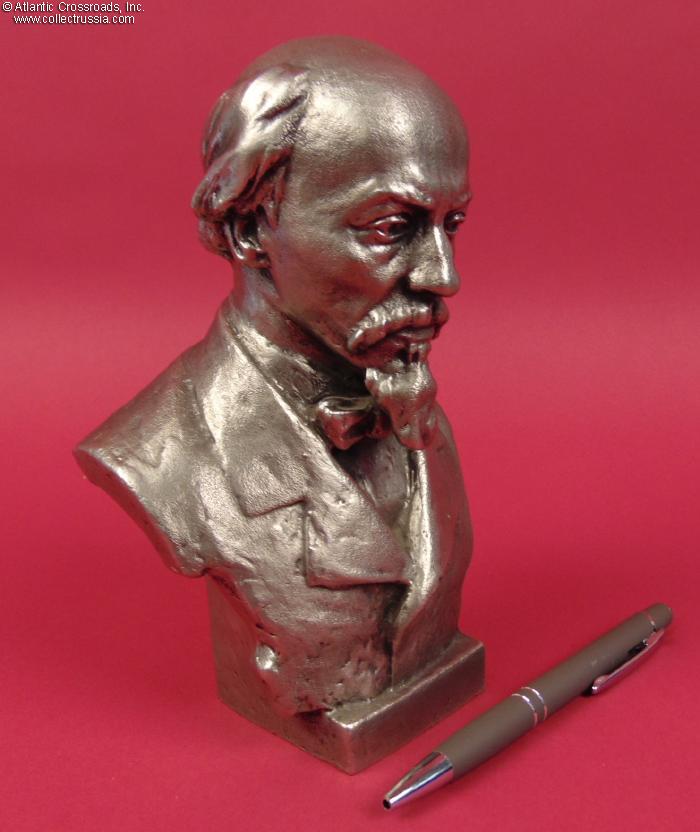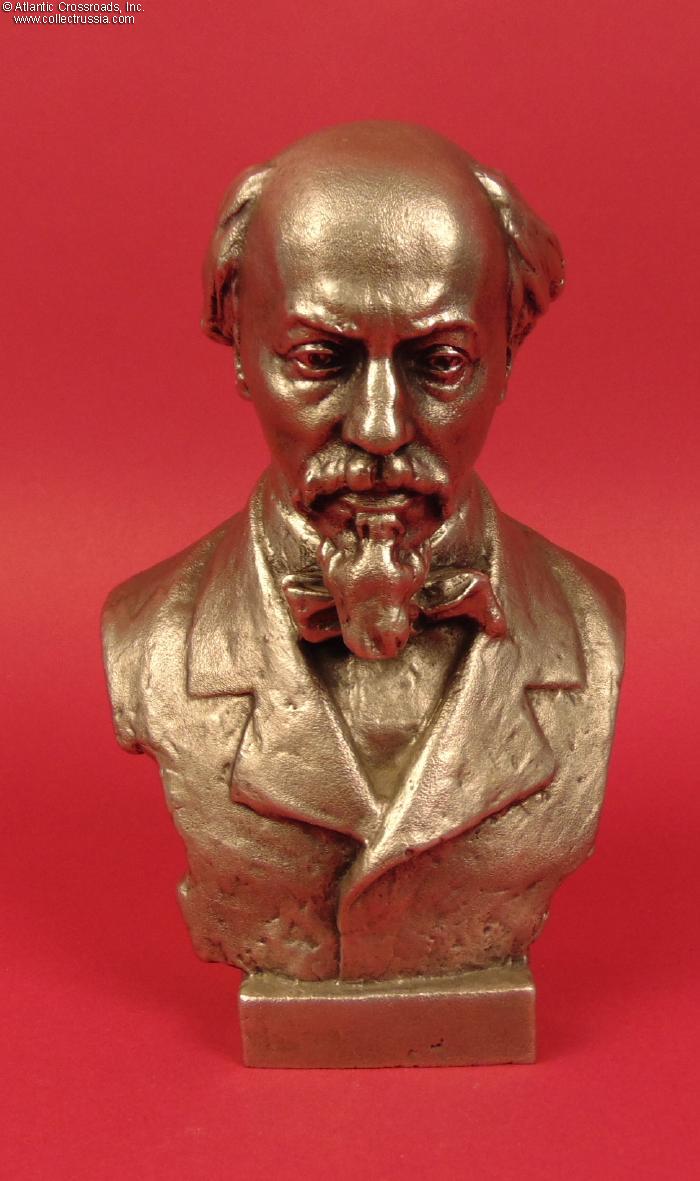
Large bust of the great Russian poet Nikolai Nekrasov, 1821 - 1878, cast in Silumin alloy, signed and dated by the sculptor, 1971.
Measures 7 ¼" in height; plinth size: 2 ¼" across; weight: 1 lb.2 oz.
The sculptor, Piotr Krivorutsky, 1920 - 1987, created an amazing likeness to the image of the poet, both facially and emotionally.
Outstanding condition. Virtually no imperfections or age wear.
Nikolai Alekseevich Nekrasov is considered the father of a new literary Russian language, specifically in poetry. His literary "revolution" was two-fold: one, he wrote poems on subjects which were almost taboo even in prose; and two, he expanded on the poetic metres accepted and in use in contemporary Rus
Measures 7 ¼" in height; plinth size: 2 ¼" across; weight: 1 lb.2 oz.
The sculptor, Piotr Krivorutsky, 1920 - 1987, created an amazing likeness to the image of the poet, both facially and emotionally.
Outstanding condition. Virtually no imperfections or age wear.
Nikolai Alekseevich Nekrasov is considered the father of a new literary Russian language, specifically in poetry. His literary "revolution" was two-fold: one, he wrote poems on subjects which were almost taboo even in prose; and two, he expanded on the poetic metres accepted and in use in contemporary Russian poetry.
Nekrasov was born in the family of an infantry captain. His father was a despot who abused his wife, children and serfs alike. Drunken
orgies were the norm in their home. His mother was the exact opposite, of very gentle character and mostly tried to escape the unendurable
behavior of her husband by way of playing piano and reading.
The father forced Nikolai to join an army regiment in St. Petersburg. Shortly after however, he enters the philological faculty of the St.
Petersburg University. His student years were marked by complete absence of support from his family and extreme poverty. He lived on the
streets and starved constantly. This period hardened his personality, but contributed to his becoming a very unhappy man. Several weeks of
total apathy and solitude interspersed with several nights of binging on card games were a frequent occurrence in his life of that period.
In 1842, Nekrasov met the wife of Ivan Panaev, a writer, and fell in love with her. Eventually, a very unusual union was born: the woman
accepted Nekrasov's love and courtship, all three went on a trip and returned to Panaev's home to live together as two husbands and wife.
This union lasted for 16 years.
Nekrasov had other loves and other women, but this tri-part union was perhaps the oddest.
The last years of the poet were filled with agony. Never one to care for his health, he went to see a doctor only when he started feeling
very ill. He was seen by the famous Russian medic professor Sklifosofsky, who found a growth inside his intestines the size of an apple.
Even then Nekrasov refused increasing doses of opium because he wanted and needed to preserve a clear mind to continue his writing.
Eventually, he agreed to surgery but the long and torturous operation yielded no imprevement.
On December 30th, despite freezing temperatures, thousands of people came to say farewell to the great writer, publicist and poet on his
last way to the Novodevichye Cemetery.
$80.00 Add to cart

